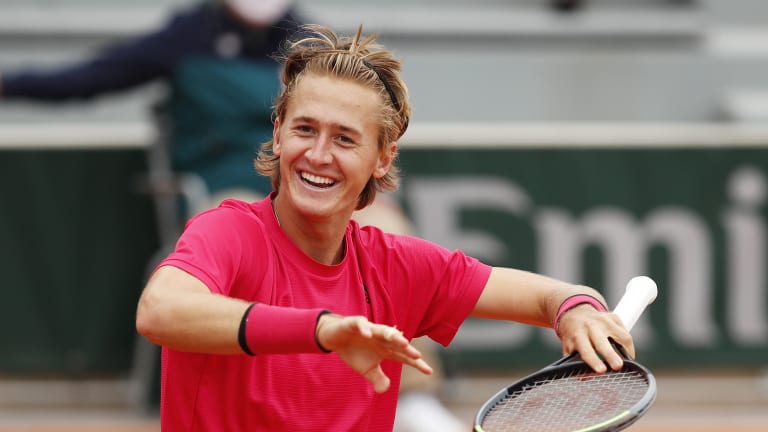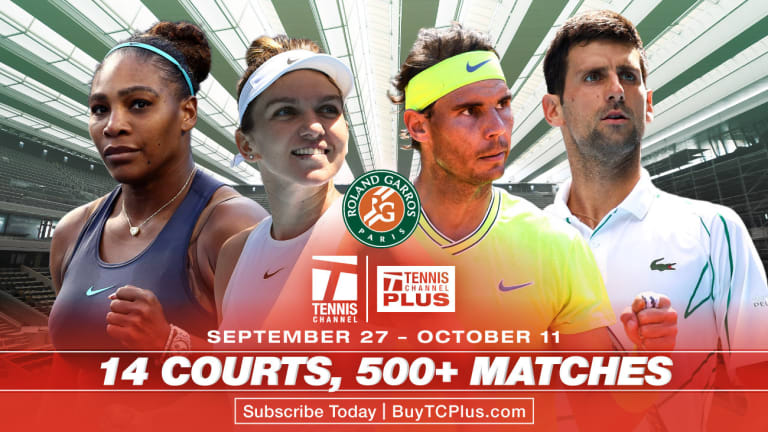Roland Garros
Sebastian Korda may have the genes—and the dynamic—to be a special pro
card-sponsor-pre Oct 05, 2020Roland Garros
Roland Garros says tennis fans must have their tickets stored on official tournament app
card-sponsor-pre Mar 12, 2024Roland Garros
Victor Wembanyama, surefire No. 1 pick in NBA draft, bids adieu to France in game at Roland Garros
card-sponsor-pre Jun 15, 2023Roland Garros
Analysis: Novak Djokovic has 23 Slams, so is he the GOAT? He leaves that debate to others
card-sponsor-pre Jun 12, 2023Roland Garros
Novak Djokovic returns to ATP No. 1 with his 23rd Slam title; Iga Swiatek stays at WTA No. 1
card-sponsor-pre Jun 12, 2023Roland Garros
Novak Djokovic’s 23rd Grand Slam win had all the hallmarks of what brought him to this record-breaking pinnacle
card-sponsor-pre Jun 11, 2023Roland Garros
Novak Djokovic wins his 23rd Grand Slam title by beating Casper Ruud in the Roland Garros final
card-sponsor-pre Jun 11, 2023Roland Garros
Where, when and how Novak Djokovic won each of his 23 Grand Slam titles
card-sponsor-pre Jun 11, 2023Roland Garros
Novak Djokovic moves up the list of most Grand Slam titles in tennis history with No. 23
card-sponsor-pre Jun 11, 2023Roland Garros
History: Novak Djokovic passes Rafael Nadal with record 23rd Grand Slam title at Roland Garros
card-sponsor-pre Jun 11, 2023Roland Garros
Sebastian Korda may have the genes—and the dynamic—to be a special pro
His father, Petr, won the Australian Open, but parental success hasn't often been passed to the next generation.
published_tag Oct 05, 2020
Advertising

Sebastian Korda may have the genes—and the dynamic—to be a special pro
© Getty Images
Advertising
Advertising

Sebastian Korda may have the genes—and the dynamic—to be a special pro